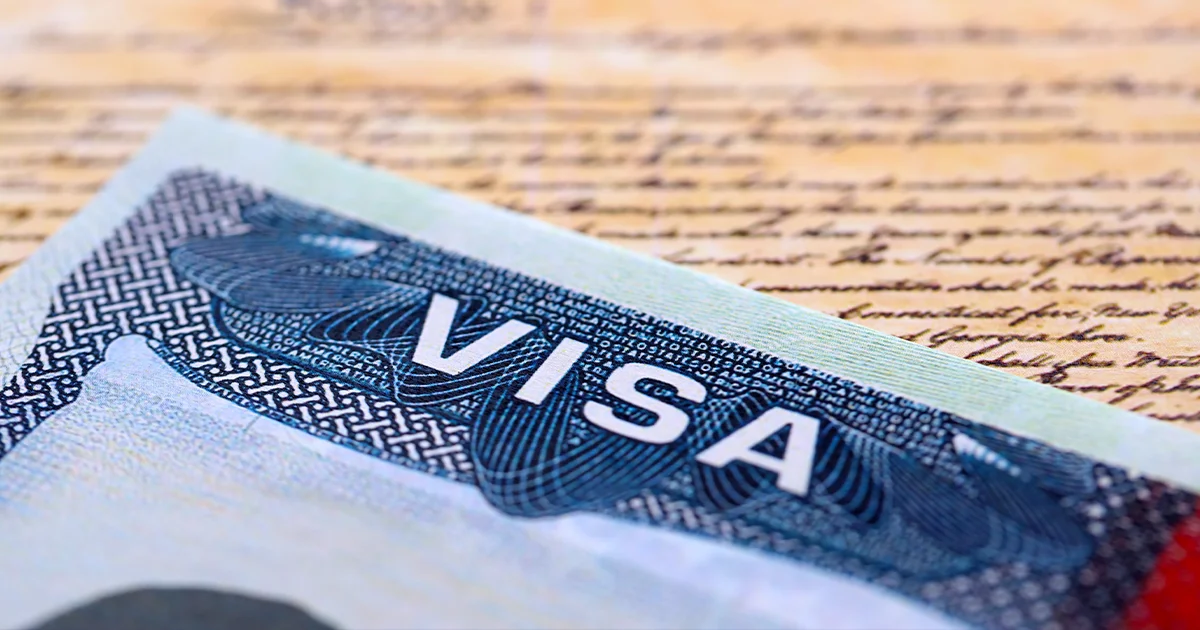
On September 6, 2025, the U.S. Department of State (DOS) announced a major policy shift that could significantly limit where nonimmigrant visa (NIV) applicants may schedule interviews. Under this updated guidance, applicants are now expected to apply for visas in their country of nationality or residence—not in a third country.
This change represents a clear move away from several years of more flexible post-COVID practices that allowed many travelers, workers, and students to apply wherever appointments were available.
In this article, I explain what the new guidance means, who is affected, and what nonimmigrant visa applicants should do to avoid delays or denials.
The Department of State now instructs that:
“Applicants for U.S. nonimmigrant visas should schedule their visa interview appointments at the U.S. Embassy or Consulate in their country of nationality or residence.”
If you are a national of a country where the United States does not conduct routine visa services—such as Russia, Belarus, Iran, or Cuba—you must instead apply at a designated alternate post. For example:
A full list of designated posts has been published by DOS.
Applicants must be prepared to prove legal residence in the country where they are applying.
If you are applying in a country other than your nationality, you will be required to show lawful long-term residence there—such as a work visa, residence permit, or other local authorization.
Applicants without clear residence documentation may be denied entry to the consular section or refused under Immigration and Nationality Act (INA) § 214(b)—the provision used when consular officers find that an applicant failed to demonstrate sufficient ties abroad.
According to DOS, existing NIV appointments will not automatically be cancelled.
However, many consular posts have already begun declining to interview third-country nationals (TCNs) who lack local residency, even if appointments were previously confirmed.
In practice, this means that:
The new guidance does not apply to:
If you believe you may qualify for an exception, consult an immigration attorney before scheduling outside your home country.
For years, business travelers, students, and professionals often applied for visas in third countries—such as Canada, Mexico, or Poland—to take advantage of shorter appointment wait times.
Under the September 2025 guidance, those applicants may now face:
While the DOS used the word “should” rather than “must,” early reports suggest that many consulates are treating this as a strict requirement.
The underlying regulations, 22 C.F.R. § 41.101, have not yet been amended.
They still give consular officers discretion to accept applications from non-residents “under certain circumstances.”
Similarly, 9 FAM 403.2-4(B) continues to authorize the acceptance of third-country-national applications—but that section is expected to be revised soon to reflect the new policy.
In other words, DOS still has the legal authority to process TCN cases, but the practical reality is that many consulates are now refusing to do so.
Applicants attempting to apply outside their country of residence should prepare for:
Even when accepted, non-resident applicants may face tougher questioning about ties to their home country and intent to return after travel to the United States.
For Russian, Belarusian, Iranian, or Ukrainian nationals now required to apply in designated locations such as Warsaw or Dubai, advance planning and realistic timelines are essential.
Although the formal regulations have not changed, this announcement signals a strong policy preference—and, in practice, a restricted path for third-country applicants.
Those who previously relied on neighboring consulates will need to adjust travel plans and expectations accordingly.
If you are preparing to apply for a U.S. nonimmigrant visa—especially as a third-country national—my team at SG Legal Group can help you evaluate the best filing location and strategy. We assist clients worldwide with B-1/B-2, F-1, J-1, H-1B, and L-1 applications and guide them through changing consular practices.
Consultations are available in English, Russian, or Romanian. Call 410-344-7100 or visit our contact page to schedule a consultation.
Oleg Gherasimov, Esq.
Stay informed with our latest updates.